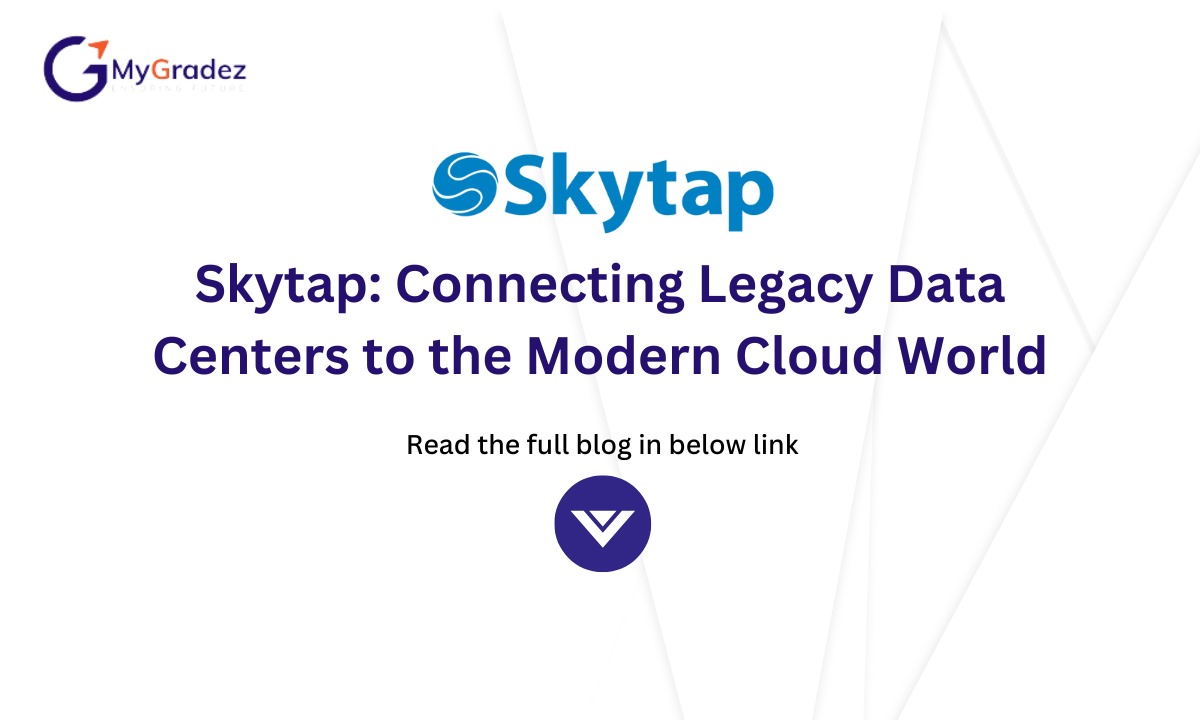While the cloud computing landscape evolves rapidly, day-to-day pressure on enterprise organizations steadily mounts to modernize the IT structure. However, many organizations remain tied to legacy systems components yet crucial for daily operations. Enter Skytap, one of the leaders in offering enterprise-class hybrid cloud solutions to synchronize traditional on-premises infrastructure with the most advanced public cloud technology. Launched in 2009, Skytap is the answer to modernization in legacy systems but retains the reliability and control that companies have grown to expect from such software.
Whether you’re an IT professional working on operations or a business seeking scalability without deviating from security, knowing what Skytap is will form part of your complete understanding in today’s digital-first business environment. This broad introduction covers what Skytap is, who can benefit from it, and its role in career development, among others, and impacts across diverse industries.
What is Skytap?

Skytap is a cloud service provider and mostly a hybrid cloud application. Unlike most traditional public cloud providers, Skytap has been built to solve some very specific challenges that business customers of old applications face. Many of the world’s large enterprises have systems built over years using older technologies such as IBM iSeries or AIX hopelessly woven into their operations. The challenge of migrating such systems to the cloud without taking the slightest risk of operational disruption is quite serious.
Skytap offers a cloud-based safe middle ground. It allows companies to move these legacy workloads to the cloud using the same architecture and systems that they used to when it was in-house. This is to say, Skytap enables an organization to leverage a virtual cloud for scalability, flexibility, and cost efficiency without rewriting or replacing their legacy applications.
Key Features of Skytap
1. Application Modernization: Skytap services will enable businesses to modernize legacy applications, and run them in the cloud, still in line with cloud-native services. As a result, the companies are able to update bits and pieces of the applications without having to rebuild the whole system.
2. Hybrid Cloud: Skytap’s hybrid cloud architecture accommodates some workloads on premises and brings others to the cloud, thus offering a flexible IT architecture that meets security as well as performance requirements.
3. Public Cloud Integration: Skytap is easily integrated with major public cloud platforms, such as Microsoft Azure, enabling businesses to extend the infrastructure with more services and capabilities.
4. Self-Service Environments Skytap facilitates a user provisioning environment on demand. Its interface is ideal for development, testing, and training as this is the area that needs multiple environments for lesser time spans and requires more for considerable lengths of time.
5. IBM Power Systems Support: Very few can match the power of Skytap in supporting legacy applications running on IBM Power Systems, especially AIX, IBM i, and Linux. This is an advantage where business places much dependence on these systems as its core operations.
Who Can Benefit from Skytap?
The services offered by Skytap are of interest to both IT professionals and large enterprises. A few of the key stakeholders are explained in the following list.
1. IT Professionals and Developers
The flexible platform of Skytap for IT professionals makes it easier to scale and manage applications. Skytap enables its users to create and manage many environments, which can be used for development, testing, and also for production purposes. Developers can work on legacy systems and cloud-native applications simultaneously to facilitate smooth integration with faster cycles. DevOps teams can use the automated environments offered by Skytap to enhance workflows, thereby reducing the time taken in testing and deployment. The platform is useful for an AWS certified DevOps engineer to optimize the development process.
2. Companies and Corporations
Businesses and corporations with large, complicated IT infrastructures have to migrate to the cloud in a manner that doesn’t hinder the daily activities they would normally be undertaking. Skytap’s hybrid cloud platform gives businesses the freedom to do this one step at a time by migrating their applications and workloads to the cloud gradually without an entire scale migration. This saves time as well as resources and at the same time diminishes the risks that are involved with a full-scale migration. These critical systems can be left in legacy mode while smoothly migrating to cloud technologies, thus achieving efficiencies in operation, scalability, and cost management.
3. Cloud Architects and Consultants
Skytap will be an essential part of the toolkit for any cloud architect or consultant that provides hybrid cloud strategies to customers. It has brought the integration of legacy systems and new, modern cloud services to the fullest and will facilitate the management of cloud migrations and digital transformation. By using Skytap, the cloud architect will create custom solutions that fit businesses’ very specific needs, starting from disaster recovery improvement to a reduction in operational costs and even more compliance security.
Career Opportunities in Skytap
With hybrid cloud adoption gaining strength in businesses, the demand for people who could work on such hybrid cloud platforms, including Skytap, has increased. Some of the career opportunities available in this space along with their pay potential are listed below:
A Cloud Solutions Architect is one who designs and implements cloud strategies. The job requires maximum expertise in the process of migration during legacy application migration into the cloud to ensure system stability and security. An individual working in India can annually earn ₹10,00,000 to ₹13,00,000 for a Cloud Solutions Architect with experience at Skytap.
DevOps Engineer: DevOps experts utilize Skytap in the development of testing environments and reuse legacy and modern systems that are fully in the cloud. They earn typically in the range of ₹8,00,000 to ₹12,00,000 per year.
Cloud Consultant: Cloud consultants guide companies through the inconvenient journey of moving into the cloud. Its hybrid capabilities make it a very powerful tool for these consultants, and consultants who specialize in Skytap can earn in the range of ₹7,00,000 and ₹10,00,000 per year.
IT Project Manager: The entire process for cloud migrations will be much easier and streamlined for IT project managers when they work with Skytap, and they are guaranteed to deliver projects on time and within budget. Their salaries can range from ₹6,00,000 to ₹9,00,000 per annum.
Real World Application Areas of Skytap
Financial Services
One of the leading banks implemented the hybrid model of Skytap for its legacy banking applications to move them to the cloud. Skytap helped this bank reduce operational costs by 30% and improve the reliability of its systems. This shift has made the organization maintain control over its systems but grants it the benefits of scalability and flexibility that the cloud offers.
Healthcare Industry
A healthcare provider has to balance stringent regulatory compliance with a need for operational agility. Skytap allowed the organization to move key applications to the cloud without compromising on security. The provider was able to maintain access to key systems on premises while improving the capabilities of disaster recovery and ensuring smooth compliance with industry regulations.
Work Environment and Lifestyle
Professionals working with Skytap are often exposed to a dynamic and flexible working environment. While the most developed cloud-professional roles, including working with Skytap operate remotely, that may be even more amplified by the possible work-life balance opportunities. The fast pace of cloud development increases the demand for professionals specialized in Skytap. Thus, indeed, there are many career development opportunities, lifelong learning, and innovation.
Conclusion
It is no longer an option to stay out of the digital transformation of our world. The Skytap platform thus offers more than a solution for those companies that need to modernize their IT infrastructure without losing control of the legacy systems. Whether you are an IT professional, a developer, or a business leader, knowing about Skytap can open up doors in the evolving cloud landscape. Skytap’s technology is a bridge between data centers and modern cloud environments, helping organizations of all sizes thrive in an increasingly digital world.


